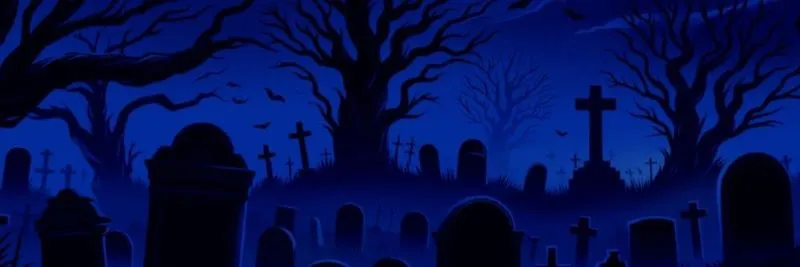LATEST:
If you thought babysitting was tough, try stopping the birth of the Antichrist. The First Omen sweeps you into a...
Whoo-ee! I love me a scary spider movie. And like an intricate, hypnotically inviting web, no two spider movies are...
Haunted houses are scary and all, but you know what’s really terrifying?? Haunted…mirrors! Join your horror hosts Jon & Kim...
2024 is shaping up to be a big year for bugs and Kiah Roache-Turner’s monster spider movie Sting is here...
Dev Patel (The Green Knight) makes his directorial debut with the action-packed revenge thriller Monkey Man. Originally intended for Netflix...
The Prank. Those delightful, seemingly harmless little tricks we play on others for a laugh. But tread carefully, for the...
This Easter, why settle for the same old pastel palette and benign bunnies when you can dive into the darker...
As we shake off the winter chill and leap into the vibrant embrace of spring, it’s time to rejuvenate our...




![IMG 6454 [Podcast] Something, Something, Haunted Mirrors: MIRROR, MIRROR (1990) 10 Mirror Mirror (1990) Megan](https://nofspodcast.com/wp-content/uploads/2024/04/IMG_6454-1500x750.jpg)
![the ceremony is about to begin indie horror found footage panic fest 2024 [Panic Fest 2024 Review] THE CEREMONY IS ABOUT TO BEGIN Blends Egyptian Lore with Found Footage Frights 11 The Ceremony Is About To Begin Indie Horror Found Footage Panic Fest 2024](https://nofspodcast.com/wp-content/uploads/2024/04/the-ceremony-is-about-to-begin-indie-horror-found-footage-panic-fest-2024-900x512.jpg)
![curse of the sin eater indie horror panic fest review 2024 e1713298275662 [Panic Fest 2024 Review] CURSE OF THE SIN EATER is an Indie Horror Delight 12 Curse Of The Sin Eater Indie Horror Panic Fest Review 2024](https://nofspodcast.com/wp-content/uploads/2024/04/curse-of-the-sin-eater-indie-horror-panic-fest-review-2024-e1713298275662-900x590.jpg)
![All You Need Is Death 2024 Olwen Fouere [Panic Fest 2024 Review] Irish Folk Horror Says Forget About Love, ALL YOU NEED IS DEATH 13 All You Need Is Death (2024) Olwen Fouere](https://nofspodcast.com/wp-content/uploads/2024/04/All-You-Need-Is-Death-2024-Olwen-Fouere-900x900.jpg)
![Azrael 2024 Samara Weaving Covered in Blood [Panic Fest 2024 Review] See A Blood-Soaked Samara Weaving in Post Apocalyptic Horror AZRAEL 14 Azrael (2024) Samara Weaving Covered In Blood](https://nofspodcast.com/wp-content/uploads/2024/04/Azrael-2024-Samara-Weaving-Covered-in-Blood-900x512.jpg)
![TFO 07276 [Review] THE FIRST OMEN Is a Prequel That Possesses with Style 23 Sonia Braga As Silvia And Nell Tiger Free As Margaret In 20Th Century Studios' The First Omen. Photo By Moris Puccio. © 2024 20Th Century Studios. All Rights Reserved.](https://nofspodcast.com/wp-content/uploads/2024/04/TFO-07276-293x293.jpg)
![INFESTED Still 5 [Panic Fest 2024 Review] 9/10 Spiders Give French Monster Horror INFESTED Eight Spooky Thumbs Up 24 Infested (2024) Spiders In The Van](https://nofspodcast.com/wp-content/uploads/2024/04/INFESTED-Still-5-293x293.jpg)
![Amityville A New Generation 1993 Suki Reflection with Noose [Podcast] Something, Something, Haunted Mirrors: AMITYVILLE: A NEW GENERATION (1993) 25 Amityville A New Generation (1993) Suki Reflection With Noose](https://nofspodcast.com/wp-content/uploads/2024/04/Amityville-A-New-Generation-1993-Suki-Reflection-with-Noose-293x293.jpg)
![Sting WellGoUSA5077 [Panic Fest 2024 Review] Monster Spider Horror STING Spins A Wild Web of Practical Effects Mayhem 26 Stong (2024) Hero](https://nofspodcast.com/wp-content/uploads/2024/04/Sting_WellGoUSA5077-293x293.jpg)
![Monkey Man 2024 Dev Patel Poster Crop [Review] Dev Patel's Action Epic MONKEY MAN Delivers Blood-Soaked Revenge 27 Monkey Man (2024) Dev Patel Poster Crop](https://nofspodcast.com/wp-content/uploads/2024/04/Monkey-Man-2024-Dev-Patel-Poster-Crop-293x293.jpg)



